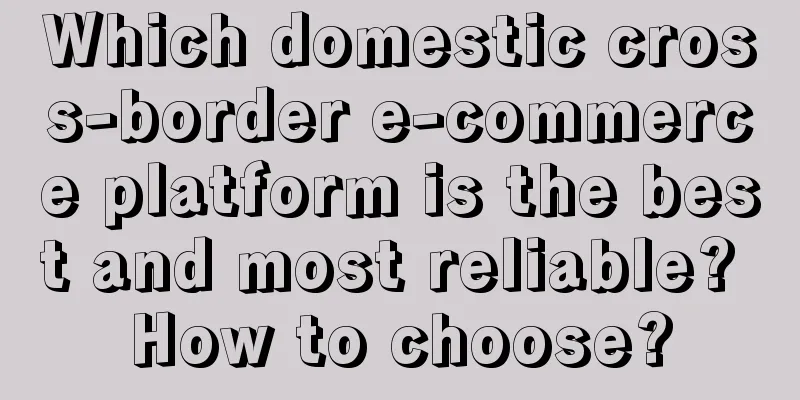Merchants pressed by "refund only" policy

"There are many cases of refunds only, and the reasons are all kinds of things," said a merchant selling burning paper helplessly. The merchant runs an online store that specializes in selling sacrificial supplies. The overall experience of his online store is five stars, and old customers with multiple consumption marks have given positive reviews such as "very good quality" and "good value for money". But even so, the merchant has been troubled by the "refund only" problem. The shop owner who sells sacrificial supplies is not the only one who is tormented by the "refund only" policy. In a mutual aid group for merchants, hundreds of merchants share their experiences of "being refunded" every day. Hu Hai (pseudonym) is the group leader of this mutual aid group and is also a "hero" in the hearts of these merchants. Because these merchants are struggling to cope with the impact of the "refund only" policy. Faced with "refund only", they appear to be very passive, and sometimes they dare not argue with buyers, otherwise they will face the double punishment of "ban" and "fine". As the e-commerce industry enters a saturated state, all e-commerce platforms have stepped up their competition, with the most important dimension being improving user experience. Therefore, regarding after-sales service, the service level of leading e-commerce companies has generally been upgraded from the past "seven-day unconditional return and exchange" to supporting "refund only". Although from the current perspective, in most scenarios, the "refund only" policy is not an after-sales service that a buyer can choose on his own, but requires the platform to identify the product quality, express service, merchant service, etc., and then serve as a bottom-line commitment for user experience. However, after all, as a third party, it is difficult for the platform to truly intervene in the business flow and logistics. The judging criteria are often only the buyer's description, screenshots of the communication between the buyer and the seller, or photos of the product. Judging from the content of the above-mentioned merchant mutual aid group, many merchants believe that due to the popularity of the "refund only" policy, "freeloaders" who specialize in taking advantage of the policy to make money have appeared in the market, and there are even "refund only training classes." said one merchant. Faced with "refund only" buyers scattered across the country, merchants are often helpless, but there are always some "serious" merchants who are willing to travel thousands of kilometers to recover the goods/payment. 01 “I can’t swallow this”On June 13, Hu Hai started a live broadcast, in which he went to Shuyang County, Jiangsu Province to look for a "high-quality customer." The "high-quality customers" mentioned by Hu Hai are not customers with good reputation or strong spending power, but a special title used by merchants to mock those buyers who "only refund". Hu Hai often joins the merchants in the "high-quality customers'" locations to ask for goods/payments, so he is praised by merchants as "the hero of e-commerce" and "the fighter against only refunds". In order to combat the "wool-gathering gang", Hu Hai also established a website called "Merchant Mutual Aid Association". Through this website, merchants in the mutual aid association can quickly obtain each other's contact information. When encountering a "refund only" situation, merchants can contact the mutual aid association members in the buyer's location to help call or visit the buyer to get the goods/payment back. "The business mutual aid association is free. Now it covers all regions except Tibet, Xinjiang, Qinghai and other regions." Hu Hai mentioned in a live broadcast. During this live broadcast, accompanied by a local merchant in Shuyang, Hu Hai went to find a "high-quality customer", a person from a construction company in Shuyang (WeChat note), whose "refund only" amount was as high as 3,167 yuan. At the peak, the number of people in Hu Hai's live broadcast room reached nearly 2,000. Some of the people in Hu Hai's live broadcast room are merchants who share the same hatred for the enemy, while others may be local users who were "bought". When Hu Hai goes to a customer's home to handle a "refund only" issue, he usually turns on the live broadcast and spends some money to push the video to a radius of five kilometers. Perhaps under pressure from "acquaintances", the "refund only" buyer from Shuyang also called and asked Hu Hai to shut down the live broadcast. The live broadcast was indeed suspended, but Hu Hai explained that it was requested by the relevant local authorities, "Let us negotiate in a friendly manner first, and if it doesn't work, they will send someone to help us solve it." Perhaps it was because of the influence of live broadcasts, or perhaps it was because of the pressure of the door-to-door visit, the buyer who only wanted a refund eventually transferred the payment to Hu Hai via WeChat. Hu Hai said: "I didn't ask him for travel expenses. This has a great deterrent effect." Merchants in the mutual aid association strongly support Hu Hai's approach. They believe that the live broadcast/video of Hu Hai taking people to find "high-quality users" can serve as a "killing the chicken to scare the monkey" and make those "wool-gathering parties" have some concerns. There are many merchants like Hu Hai who go to "high-quality customers" to collect money. The amount they are seeking to recover is only a few dozen yuan, or even a few yuan. The main reason for traveling thousands of kilometers to collect the money is that they "can't swallow this humiliation." A Yiwu merchant recorded the whole process of his pursuit of a 9.9 yuan short-sleeved shirt. The "high-quality customer" mentioned by the merchant is located in Weihai, Shandong, 1,500 kilometers away from him. The merchant found the buyer's school based on the delivery address and obtained the buyer's contact information through the school's express delivery station. After meeting the buyer, the merchant questioned why the buyer gave the refund reason of "the goods do not match the description". The buyer replied "it is not cotton", but the merchant explained that the word "cotton" never appeared in the product title. After much coordination, the two parties signed a "Letter of Understanding". The merchant finally made two demands: one is to return the full payment, and the other is to ask the buyer to bear part of the travel expenses. Faced with thousands of yuan in travel expenses, the buyer changed her mind after the merchant returned the money. She said that she was a student and could not afford the expenses, and even made some extreme emotional remarks. Regarding the buyer's inconsistency, some netizens commented: "Just refunding is a test of human nature, but human nature is often the most vulnerable to test." 02 “I have sent out several wreaths”When faced with “refund only”, considering the cost issue, not all merchants will choose to go to the customer’s door to get the goods/payment back, but will choose other ways to “get their revenge”. In mutual aid groups, merchants often post information about buyers who only want a refund, or even the "surveillance video of picking up goods" recorded at courier stations. Some merchants who are angered will even post this information online. The emotions aroused by "only refunds" make them unable to consider whether this method is suspected of being illegal. "In online stores, people kneel down to talk, and on the phone, they greet their eight generations of ancestors." A merchant in Jiangsu makes dozens of phone calls every day to "greet" buyers who only want refunds. "I often call them in the middle of the night. If it's a male buyer, we ask our female customer service to call her husband in the middle of the night, but remember not to use the phone number registered by the merchant." Phone or text message bombing is a common "weapon" used by businesses. Businesses in mutual aid groups will also share the background of the bombing software. As long as you fill in the bombing phone number, you can choose to use "SMS bombing", "phone bombing" and other methods to continuously send messages or make calls. You can also set "timed bombing" and "bombing duration" in the background. "I have sent out several wreaths. I feel comfortable whether they are signed or not," said a merchant in Jiangsu. Another merchant in Heilongjiang directly posted the "ghost money" orders he sent to buyers. When asked what to do if the buyer complained, the two merchants responded in the same way: Just say it was sent to the wrong address. Is there a problem? A big part of the reason why merchants are so angry is that the reasons for "refund only" are too outrageous, and what's even more outrageous is that the refunds were all successful. "I am speechless about these people who are trying to take advantage of the situation. They bring other people's review pictures to my store and ask for 'refund only'." An Anhui merchant recently received a request for "refund only". The reason given by the buyer was that "there are bugs on the bamboo shoots". The merchant discovered that the picture provided by the buyer was a review picture posted by someone else in June 2023. On June 13, a clothing merchant in Shandong received a "return and refund" application. The order screenshots sent by the merchant showed that the buyer had signed for the clothing three months ago, but only now applied for a refund on the grounds that "the material did not match the description." The merchant said, "He has worn it for so long, but he said it was old and ugly. I proposed to apply for a 5 yuan discount for him, but he did not accept it. Later, the platform took the initiative to intervene and prompted the buyer to only refund. During this period, I was temporarily banned." "My profit is only about 15%. If I refund one person, it's like I've lost 10 jobs." A merchant in Hebei who sells "generic imitation" bags has been forced to close his shop because of the "refund only" policy. The after-sales details he provided showed that the buyer's reason for refunding was "I like it, but some threads are falling out." The merchant said angrily, "A 35 yuan bag can't have the quality of a bag worth tens of thousands of yuan. I'm going to close my shop, which I just opened in April. I'm going to be a 'quality customer' in the future to make up for my losses." A Shandong merchant who sells virtual products is helpless about refunds. "I'm in the ringback tone business, and the reasons for refunds are all kinds of weird. Once the virtual product is sent out, it's 'freeloading', and the promotion fee is wasted." Another merchant agreed, "Automatic delivery of virtual products is not okay. Once it's returned, it's gone, and basic appeals are not accepted." Sometimes the "fire" of refund-only policy also spreads to the "couriers". Many buyers apply for "refund-only policy" with reasons such as "not receiving the goods". Merchants can only verify the delivery information through the courier or courier station, or even directly complain to the courier. "The courier is innocent too. We, the merchant, are only refunded. It is not the courier's fault, but they still have to be deducted money." A merchant in Guangdong feels "unbearable" about this practice. These merchants have been unable to understand why buyers are unwilling to send back the goods when there is shipping insurance. They repeatedly discuss a topic in the group: "If it is bad quality, why don't you return the goods?" 03 “Is it popular to receive warning letters now?”Before taking these extreme measures, these businesses had tried other more "mild" approaches, but with little success. "Last month, a 30-yuan payment was refunded. I successfully appealed to the platform, but only 14 yuan was returned in the end," said a merchant in Guangdong. Another merchant in Anhui also posted a picture of his successful appeal in the group, and he got 28 yuan back out of a 34-yuan payment. Since the money recovered through appeal is often "discounted", many merchants give up on the path of appeal. They believe that "the money recovered through appeal is not as expensive as the labor costs", but even more merchants cannot even go through the path of appeal. "I have a store with a 70% approval rate, but other stores have less than 20% approval rate." A merchant couldn't understand why there was such a big gap between his stores. In the mutual aid group, many merchants mentioned their failed appeals. For them, "reaching a 50% approval rate" is already a luxury. A Shandong merchant once asked a courier for help, hoping that the courier could contact the buyer to retrieve the goods, but the buyer complained to the platform on the grounds that "the merchant asked the courier to harass me", and the platform eventually fined the merchant 200 yuan. A merchant in Guangdong was also fined and banned for 5 days. Another experienced merchant said, "Just wait for the fine if you argue." Because of this, group leader Hu Hai also gave advice: "If you encounter 'refund only', don't communicate with 'high-quality users' and don't argue." Some merchants also tried to explain the "consequences" of "refund only" to buyers during the transaction, trying to warn and deter "wool parties", but it still had no effect and was even disliked by buyers. Some merchants attach notes on product details pages, express packaging bags, or in the shipped goods to explain the "consequences" of only refunding, such as: "only refunding" without the merchant's consent, directly suing, and no longer informing or reminding. The cost of the lawsuit and the compensation amount of about 2,000 yuan will be borne by the buyer. The purchase means agreeing to the terms. A buyer who bought chicken feet online saw this kind of "refund notice only" note when she opened the express package. She said angrily, "Before, when I bought something, I would receive a greeting card, or a card saying I could return the product if I was not satisfied with it or contact customer service. Now it's popular to receive a warning letter?" Some merchants have tried to avoid the "freeloaders" by selling products with high customer prices, but they found that even expensive items would be "refunded only". In desperation, merchants exchanged information and counted several provinces with the highest probability of "refund only", such as Shandong and Liaoning, and set these provinces as "no delivery areas". Some businesses also suggested that members of the mutual aid association could hire a full-time lawyer to help transfer files and file lawsuits, but the lawyers on the market who only handle refunds are a mixed bag, and everyone failed to reach a consensus on this in the end. On social media, there are many lawyers who only handle refunds, and they have posted many successful cases of recovering the money after suing. But in fact, it is not that easy for merchants to win the lawsuit. Even if they win the lawsuit, they can only recover the money for the goods, and it is difficult to get back other expenses related to the lawsuit. After trying various ways to deal with "refund only", merchants found that the most effective way was to "quit the store" and quit. In the mutual aid group, many merchants set up street stalls after closing the store, and they often lamented that "the end of e-commerce is street stalls." |
>>: Decoding the 618 Strategy: How does Douyin e-commerce achieve the formula for hit beauty brands?
Recommend
Douyin is making efforts in the same city, and Meituan should be anxious
This article discusses the competitive relationshi...
The old domestic products are divided into two categories: some are revived, some are in the final glory
How can old domestic brands achieve self-salvation...
November is quietly approaching. How can brands take the right marketing approach?
November is coming soon, and Xiaopai has compiled ...
The era of short drama 2.0: gold rush, big changes, new trends
In 2024, short short dramas ushered in the booming...
What happens if you don't graduate from Shopee? What are the graduation requirements?
After joining Shopee, the platform has a brief sup...
Which sellers does eBay have the most restrictions on? What are the main restrictions?
After opening a store on a cross-border e-commerce...
How to calculate Amazon warehouse capacity? What is the method?
To open a store on Amazon, you not only need to le...
How many spam communities have you blocked? That’s not how communities work!
As operators, we also manage a lot of communities....
250,000 followers on Douyin, 30 orders
Why does an account with professional authors, goo...
Is the fate of workers in the hands of AI interviewers?
AI interviews are becoming a new trend in recruitm...
Ask and I'll give you some money
Recently, the "Wenyiwen Creation Profit Plan&...
Without showing face or shooting videos, sharing health tips with pictures and texts, earning 75,000 yuan a month
This article analyzes a successful case - a 100-ye...
With sales exceeding 75 million in a single month, can the “Silky Zheng Xiangxiang” be copied?
This article starts from the recent success of Zhe...
With 100 million units sold in 3 years, Bear Electric Appliances has become the top small household appliance brand. How does it plan its private domain operations?
In recent years, more and more people have paid at...
What should I do if the conversion rate of Amazon products is low? Solution introduction
The higher the conversion rate on Amazon, the bett...









